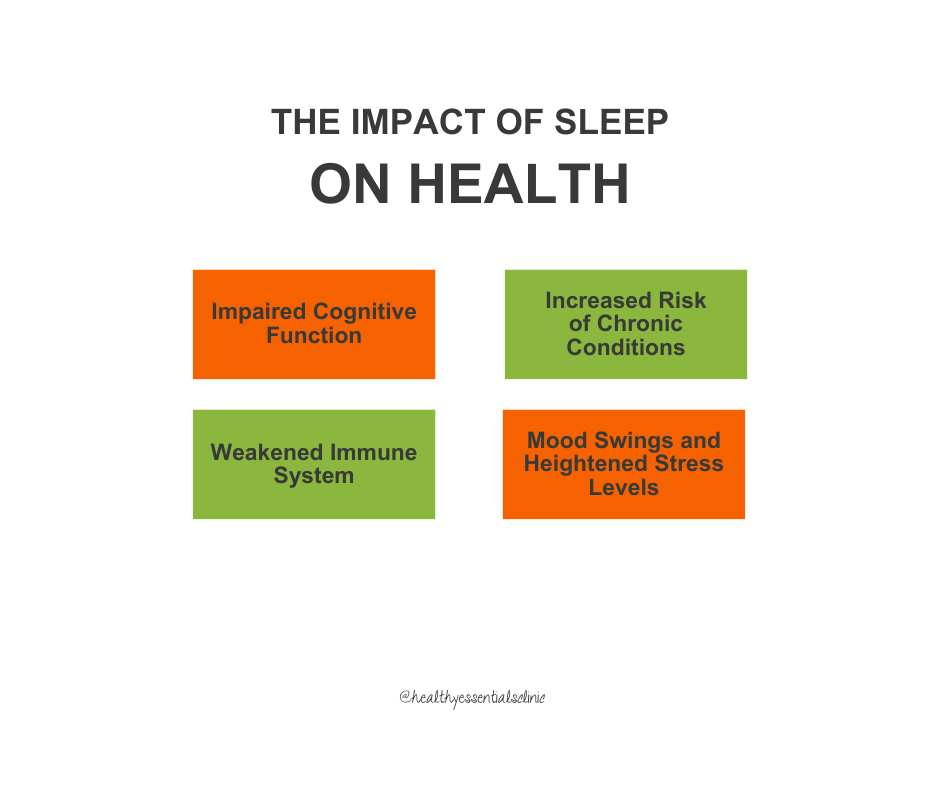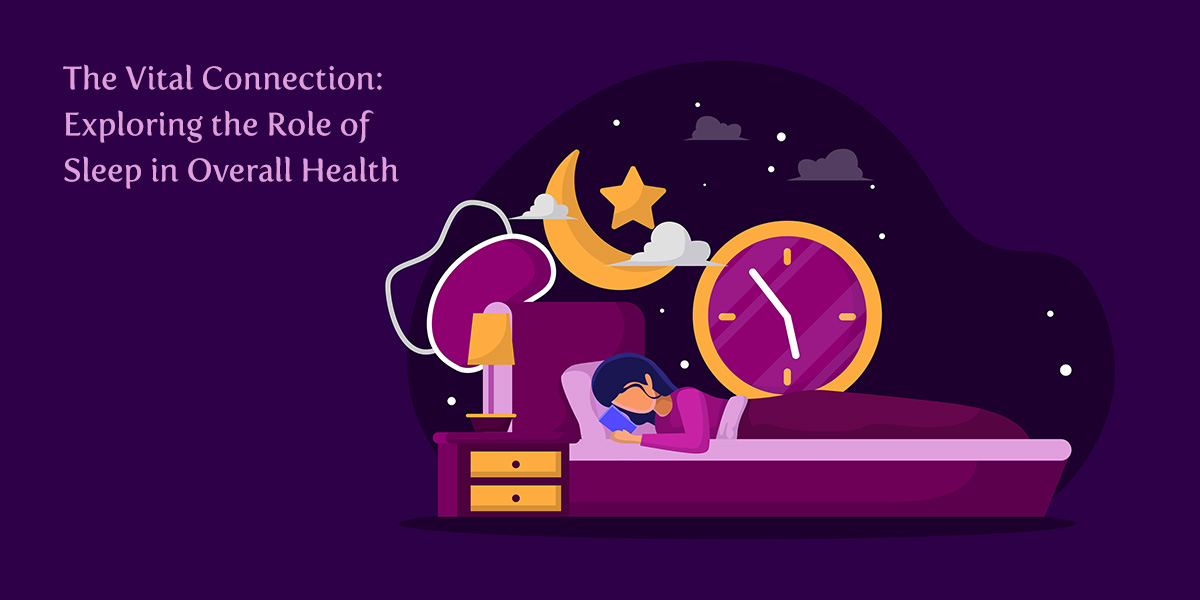The Impact of Sleep Quality on Overall Health: A Comprehensive Guide

Delving into the impact of sleep quality on overall health opens up a realm of interconnected well-being. From physical vitality to mental clarity, the quality of our sleep plays a pivotal role in shaping our health. Let's explore the profound effects and intricate dynamics of sleep quality on our holistic wellness.
As we navigate through the various aspects of sleep quality and its implications on health, a deeper understanding unfolds, shedding light on the crucial relationship between restful sleep and optimal well-being.
Importance of Sleep Quality

Sleep quality plays a crucial role in maintaining overall health and well-being. Poor sleep quality can have detrimental effects on both physical and mental health, impacting various aspects of our daily lives.
Impact on Physical Health
Poor sleep quality can lead to a range of physical health issues, including an increased risk of obesity, heart disease, and diabetes. The body requires adequate rest to repair tissues, regulate hormones, and support overall bodily functions. Chronic sleep deprivation can disrupt these processes, contributing to long-term health problems.
Impact on Mental Health
In addition to physical health, sleep quality also affects mental well-being. Lack of quality sleep is linked to mood disorders, such as depression and anxiety, as well as cognitive impairment and difficulty concentrating. Adequate sleep is essential for proper brain function and emotional regulation.
Relationship with Immune Function
Sleep quality is closely tied to immune function, with studies showing that inadequate sleep can weaken the immune system. During sleep, the body produces cytokines, proteins that help fight infections and inflammation. Chronic sleep deprivation can lower the production of these immune-boosting substances, making individuals more susceptible to illnesses.
Factors Influencing Sleep Quality
Sleep quality can be influenced by various lifestyle factors that can either positively or negatively impact our rest. Stress, diet, and exercise are some of the key factors that play a crucial role in determining the quality of our sleep.
Lifestyle Factors Affecting Sleep Quality
- Establishing a consistent sleep schedule can help regulate our body's internal clock, promoting better sleep quality.
- Avoiding caffeine, nicotine, and heavy meals close to bedtime can prevent disruptions in sleep patterns.
- Creating a comfortable sleep environment with proper lighting, noise levels, and temperature can enhance the quality of sleep.
The Role of Stress in Disrupting Sleep Patterns
Stress is a common factor that can disrupt our sleep patterns, making it difficult to fall asleep or stay asleep throughout the night. When we are stressed, our bodies release cortisol, a stress hormone that can interfere with the natural sleep-wake cycle.
Managing stress through relaxation techniques, mindfulness, and stress-reducing activities can help improve sleep quality.
Impact of Diet and Exercise on Sleep Quality
- A balanced diet rich in nutrients like magnesium and tryptophan can promote better sleep quality.
- Regular exercise can help regulate our sleep patterns and improve the overall quality of our sleep.
- Avoiding heavy meals before bedtime and opting for light snacks can prevent digestive issues that may disrupt sleep.
Effects of Poor Sleep Quality
Chronic sleep deprivation can have serious consequences on overall health and well-being. It can lead to a range of negative effects on both physical and mental health, impacting various aspects of daily life.
Contribution to Health Conditions
Poor sleep quality has been linked to the development of certain health conditions such as obesity, diabetes, cardiovascular diseases, and even certain types of cancer. The body's natural processes, including metabolism and immune function, can be disrupted by inadequate sleep, making individuals more susceptible to these conditions.
Impact on Cognitive Function
Insufficient sleep can significantly impair cognitive function, affecting memory, concentration, problem-solving abilities, and overall mental clarity. Research has shown that lack of quality sleep can lead to decreased productivity, increased errors, and difficulty in learning and retaining new information
Strategies for Improving Sleep Quality

Creating a sleep-friendly environment, establishing a regular sleep schedule, and incorporating relaxation techniques are key strategies to enhance sleep quality.
Sleep-Friendly Environment
One tip for creating a sleep-friendly environment is to keep your bedroom dark, quiet, and cool. Consider investing in blackout curtains, earplugs, or a white noise machine to block out any disturbances that may disrupt your sleep. Additionally, ensure that your mattress and pillows are comfortable and supportive to promote a restful night's sleep.
Regular Sleep Schedule
Establishing a regular sleep schedule involves going to bed and waking up at the same time every day, even on weekends. This helps regulate your body's internal clock, making it easier to fall asleep and wake up naturally. Consistency is key in maintaining a healthy sleep routine.
Relaxation Techniques
Engaging in relaxation techniques before bedtime can help calm your mind and body, making it easier to drift off to sleep. Consider practices such as deep breathing, progressive muscle relaxation, or meditation to reduce stress and promote relaxation. These techniques can improve sleep quality and overall well-being.
Sleep Disorders and Health

When it comes to sleep disorders, they can have a significant impact on an individual's overall health and well-being. It is crucial to understand the common sleep disorders, their symptoms, effects, and the importance of seeking medical advice for persistent issues.
Common Sleep Disorders
- Insomnia: Characterized by difficulty falling asleep or staying asleep, leading to poor quality sleep and daytime fatigue.
- Sleep Apnea: A condition where breathing repeatedly stops and starts during sleep, causing loud snoring and daytime sleepiness.
- Restless Leg Syndrome: An irresistible urge to move legs, usually due to uncomfortable sensations, leading to difficulty falling asleep.
- Narcolepsy: A neurological disorder causing excessive daytime sleepiness and sudden sleep attacks.
Symptoms and Effects of Sleep Disorders
- Daytime fatigue and sleepiness
- Irritability and mood changes
- Difficulty concentrating and memory issues
- Increased risk of accidents and injuries
Importance of Seeking Medical Advice
- Proper diagnosis and treatment of underlying conditions
- Prevention of long-term health complications
- Improvement of overall quality of life
Closure
In conclusion, the intricate dance between sleep quality and overall health becomes apparent, urging us to prioritize restful nights for the sake of our physical, mental, and emotional vitality. As we embrace the significance of quality sleep, we pave the way for a healthier and more vibrant existence.
Quick FAQs
How does sleep quality impact overall health?
Sleep quality affects various aspects of health, including physical, mental, and emotional well-being. Adequate, restful sleep is essential for overall vitality.
What lifestyle factors can influence sleep quality?
Lifestyle factors such as stress levels, diet, exercise, and sleep environment can significantly impact the quality of sleep one experiences.
What are some common sleep disorders that affect overall health?
Common sleep disorders like insomnia, sleep apnea, and restless leg syndrome can have detrimental effects on overall health if left untreated.




